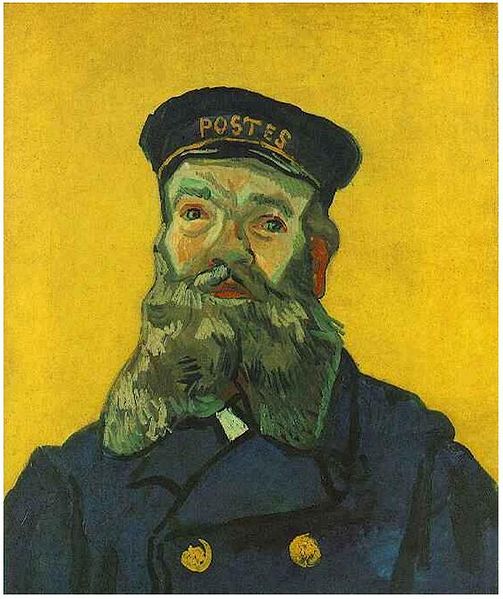Today I leave you with two richly evocative quotes from God After Metaphysics: A Theological Aesthetic by Greek Orthodox theologian John Panteleimon Manoussakis (previously excerpted here) accompanied by relevant paintings..
“How, or rather, what do I see when I see you? A body? Isn’t it the case that I see only you in your body? Are you totally exhaustible by your body? Then, what is a gesture? The tone of your voice? Posture? The same questions can be asked concerned painting. What makes this painting a Van Gogh and not a Rembrandt? What is the style? Is it in the painting without, however, being the painting. It is the unapparent, the aphanes, that somehow appears visible? For what is visible in a painting–the colors, the shapes, the strokes of the brush–is precisely not the style. It is never the eye (as a physiological organ) or the ear that sees and bears but ‘I’–this ‘I,’ however cannot be seen, heard, or touched. That is why it (the I) can see and hear and touch what is called here the unapparent. This is not to deny embodiment and the flesh–on the contrary. The ‘I’ does not float in the air, it is always embodied–incarnate–in my body (as style is in the painting), but it is not completely exhausted by the body understood as a physical, measurable, that is, objectified thing. What would dare to say the I is a thing? (That is, who else but Descartes, Leibniz, and Spinoza?).”
“What Kierkegaard calls ‘eternity’s equality’ is not any different from what we mean by eschatology–for, indeed, this likeness, the iconic reflection of the divine in each and all of us, shines more fully at the eschaton, but it has always begun to glimmer in the now. It is this glimmer that the prosopic [person-in-relation] reduction should allow us to see–in other words, what Merold Westphal refers to in one of his essays as the ‘halo’ that we often see emanating from the faces in Van Gogh’s portraits. But in order to see it, we have to hold each person up, so to speak, to the light that shines from a future unknown and unseen, refusing thus to decide about the definite being and the definition of the persons on the grounds of who he or she is or has been. The truth of the other person does not lie in his or her past or present but in the eschaton.”
What I found most interesting is how the “halo” comes through differently in each of these monumental Van Gogh portraits of the same quotidian subject. But is there anything quotidian about the undesirables–the homeless, the undergraduates, and the lawyers–whom you meet in the streets? What’s more, can you bare to look at this aspect of your mailman’s face without averting your gaze?





Being a student of Luigi Giussani, I am moved by
“What Kierkegaard calls ‘eternity’s equality’ is not any different from what we mean by eschatology–for, indeed, this likeness, the iconic reflection of the divine in each and all of us, shines more fully at the eschaton, but it has always begun to glimmer in the now. It is this glimmer that the prosopic [person-in-relation] reduction should allow us to see–in other words, what Merold Westphal refers to in one of his essays as the ‘halo’ that we often see emanating from the faces in Van Gogh’s portraits. But in order to see it, we have to hold each person up, so to speak, to the light that shines from a future unknown and unseen, refusing thus to decide about the definite being and the definition of the persons on the grounds of who he or she is or has been. The truth of the other person does not lie in his or her past or present but in the eschaton.”
Elizabeth ewnimages@gmail.com